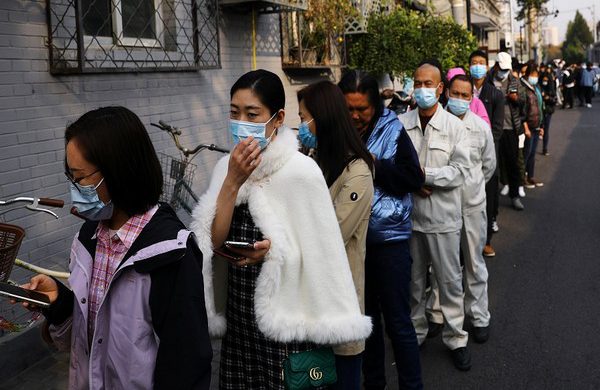The World Health Organisation (WHO) has recommended a new vaccine, R21/Matrix-M, for the prevention of malaria in children, an official release said.
The recommendation follows advice from the WHO: Strategic Advisory Group of Experts on Immunisation (SAGE) and the Malaria Policy Advisory Group (MPAG) and was endorsed by the WHO Director-General following its regular biannual meeting held on September 25-29.
WHO also issued recommendations on the advice of SAGE for new vaccines for dengue and meningitis, along with immunisation schedules and product recommendations for COVID-19. WHO also issued key immunisation programmatic recommendations on polio, IA2030 and recovering the immunisation programme, it added.
The R21 vaccine is the second malaria vaccine recommended by WHO, following the RTS,S/AS01 vaccine, which received a WHO recommendation in 2021. Both vaccines are shown to be safe and effective in preventing malaria in children and, when implemented broadly, are expected to have a high public health impact. Malaria, a mosquito-borne disease, places a particularly high burden on children in the African Region, where nearly half a million children die from the disease each year, the release said.
Demand for malaria vaccines is unprecedented; however, the available supply of RTS,S is limited. The addition of R21 to the list of WHO-recommended malaria vaccines is expected to result in sufficient vaccine supply to benefit all children living in areas where malaria is a public health risk.
“As a malaria researcher, I used to dream of the day we would have a safe and effective vaccine against malaria. Now we have two,” said Tedros Adhanom Ghebreyesus, WHO Director-General in a media briefing with Strategic Advisory Group of Experts on Immunisation.
“Demand for the RTS,S vaccine far exceeds supply, so this second vaccine is a vital additional tool to protect more children faster, and to bring us closer to our vision of a malaria-free future,” he added.
Matshidiso Moeti, WHO Regional Director for Africa, emphasised the importance of this recommendation for the continent, saying, “This second vaccine holds real potential to close the huge demand-and-supply gap. Delivered to scale and rolled out widely, the two vaccines can help bolster malaria prevention and control efforts and save hundreds of thousands of young lives in Africa from this deadly disease.”
The next steps for the second recommended malaria vaccine, R21/Matrix-M, include completing the ongoing WHO prequalification which would enable international procurement of the vaccine for a broader rollout.
At least 28 countries in Africa plan to introduce a WHO-recommended malaria vaccine as part of their national immunisation programmes. Gavi, the Vaccine Alliance has approved providing technical and financial support to roll out malaria vaccines to 18 countries. The RTS,S vaccine will be rolled out in some African countries in early 2024, and the R21 malaria vaccine is expected to become available to countries in mid-2024, a WHO release said. (ANI)
Read More: https://lokmarg.com/

